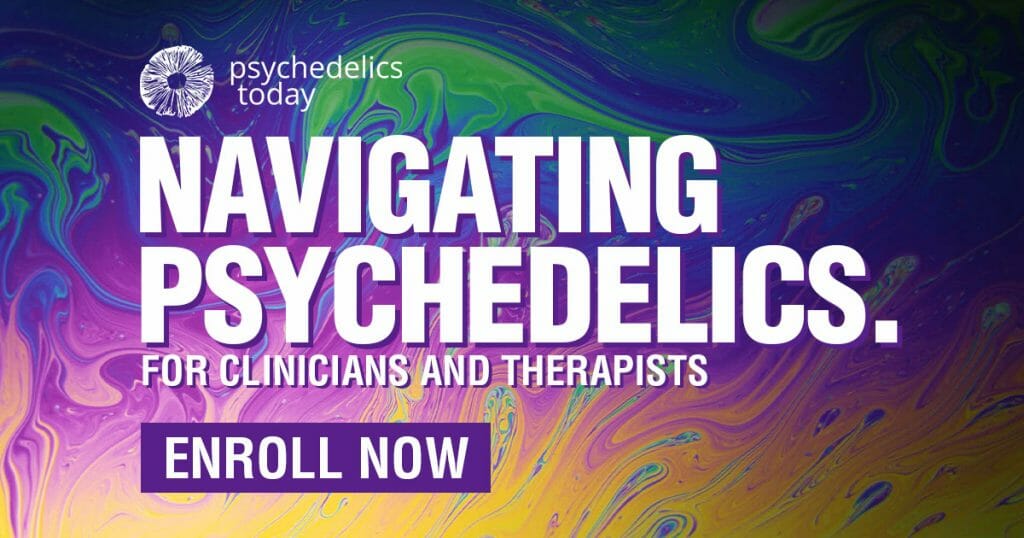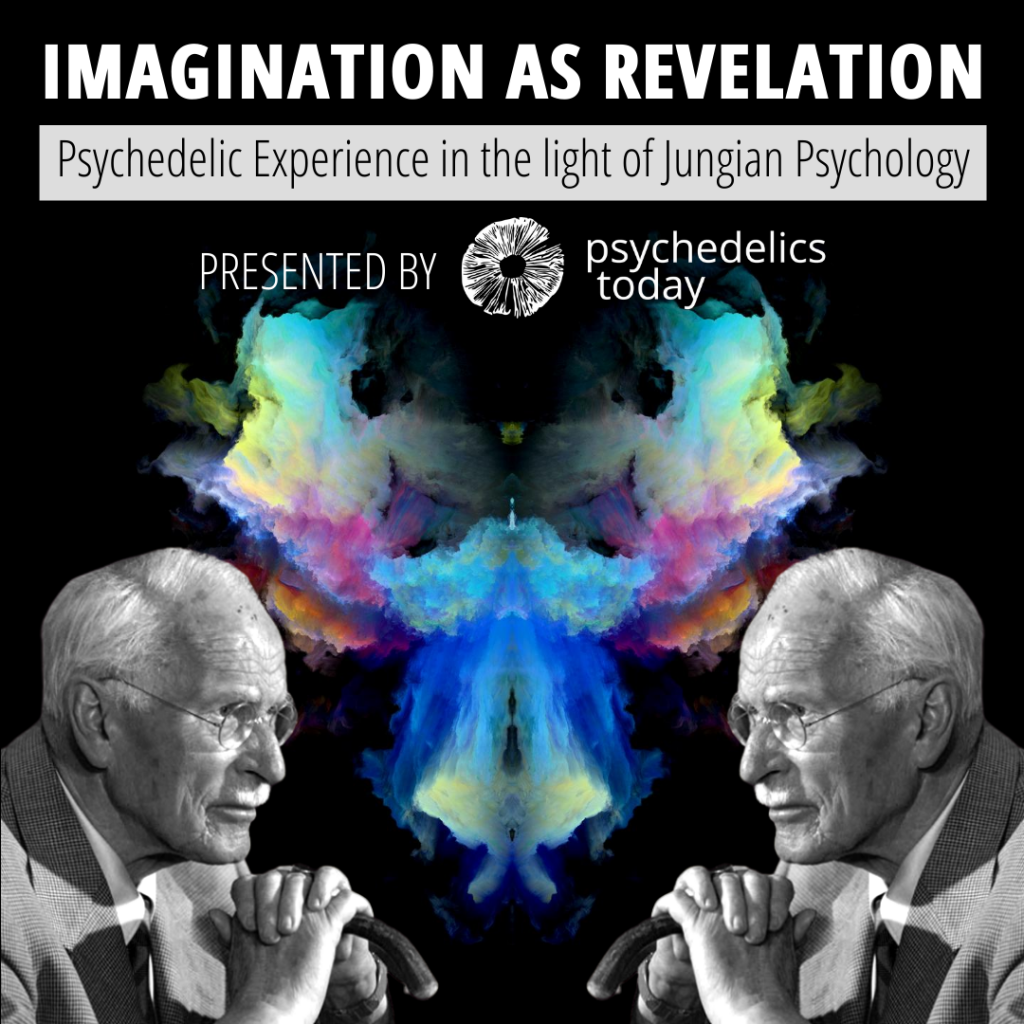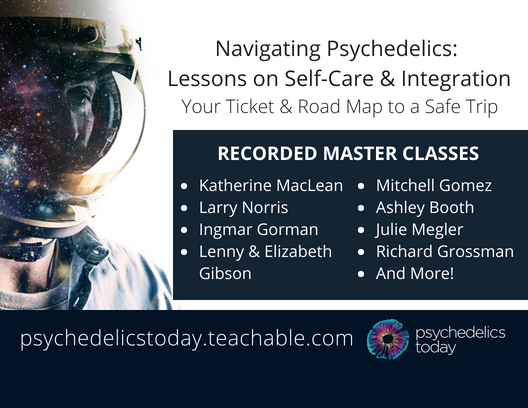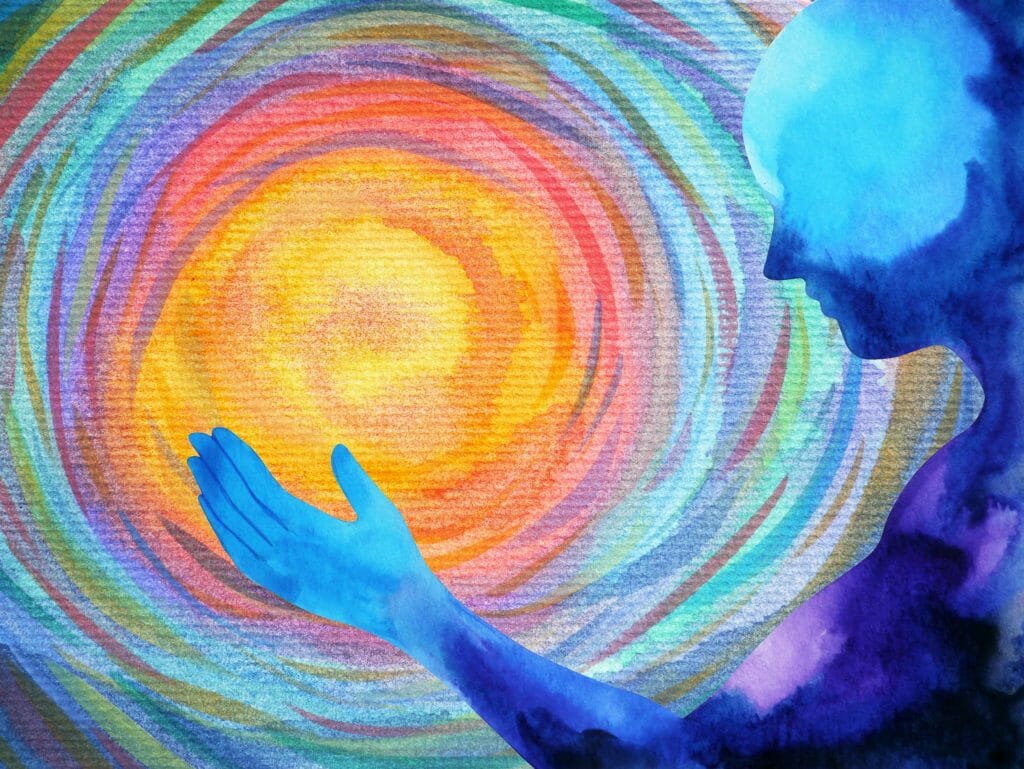By Amanda J. Khan, PhD
What is “moral injury” and how might psychedelics help?
Moral injury refers to the biopsychosocial-spiritual suffering stemming from participating, witnessing, or learning about events that transgress one’s deeply held moral beliefs (Litz et al., 2009; Shay, 2004). Moral injury is not a new construct, and the idea of a “soul wound” has long been evident in the writings of Homer and Plato. However, over the past 15 to 20 years, the term moral injury has resurged as a focus within the field of clinical psychology and psychiatry. At the same time, psychedelics are similarly experiencing a renaissance. Is this mere coincidence or an indication of a deeper underlying process at play? How might psychedelics hold promise for healing moral injury?
Moral injury is not a psychiatric diagnosis (Farnsworth et al., 2017; Jinkerson, 2016), but it can include feelings of guilt, shame, anger, disgust, and sadness, thoughts of personal regret and systemic failures, and avoidance and self-handicapping behaviors (Ang, 2017). Considered to be more “syndromal” than “normative” moral pain, moral injury is associated with significant impairment in relational, health, and occupational functioning as demonstrated by poorer trajectories in these areas (e.g., Maguen et al., 2020; Purcell et al., 2016).
Although the two often co-exist, moral injury is distinct from post-traumatic stress disorder (PTSD). While PTSD is largely rooted in and characterized by fear-based conceptualizations (i.e., focus on life threat, victimization) and symptoms, moral injury is rooted in perpetration, complicity, and betrayal and characterized by moral emotions (guilt, shame, spiritual conflict). Largely studied in the context of military experiences (see Griffin et al., 2019 for review), researchers have bifurcated morally injurious events into transgressions (by others and self) and betrayal (Bryan et al., 2016; Nash et al. 2013). However, morally injurious events are not limited to certain people or contexts, but rather range widely (e.g., killing in combat, deciding which COVID-19 patient gets a ventilator in resource-poor settings, witnessing police violence against people of color, being ordered to break rules of engagement, institutional betrayal in sexual assault cases) (e.g., Badenes-Ribera et al., 2020; Smith & Freyd, 2013; Litam & Balkin, 2021).

In my professional experience, those who experience moral injury stemming from transgression they themselves committed (either through action or inaction) can often carry deeply painful thoughts of “being a monster” and often engage in various forms of self-punishment and isolation in order to “protect others from themselves.” Most often, self-forgiveness feels like “letting oneself off the hook” for what was done, which is unacceptable. This deep sense of accountability, of course, reflects the actual inherent goodness and strong moral compass within the individual. Those who have experienced betrayal and transgression by others may find it especially difficult to trust people, carrying deep existential wounds about the goodness of humanity. However, most often, those struggling with moral injury have experienced all three of these types of wounds to various extents.
Moral injury is in essence a social wound, predicated on the morals and values constructed and shaped by communities and society (Scheder, Mahapatra, and Miller, 1987; DePrince, & Gleaves, 2007; Litam & Balkin, 2021). But how does one heal a social wound? Evidence based treatments for post-traumatic stress disorder (PTSD), a related ailment, yield underwhelming efficacy especially in veterans, with up to 60% not experiencing meaningful improvement (Steenkamp, Litz, & Marmar, 2020). One reason for this may be that these approaches are not adequately addressing moral injuries within traumatic stress responses. Interestingly, the mental health field generally tries not to discuss morals, and yet it is clear that trauma and suffering are inextricable from morality. The false assumption of moral neutrality is deeply damaging and has allowed the mental health field to largely bypass the “moral” nature of trauma, war, and discrimination.
Relatively antithetical to current PTSD treatments, individuals struggling with moral injury need the moral violations acknowledged and held, rather than cognitively restructured away. Even in our approaches to healing, the Western mental health field places high value on the role of the individual as both the source of the problem and the solution, rather than the collective or society. In other words, it’s an individual’s “problem” and it’s on them to do the work to “heal themselves.” Much of current research is an exemplar of this through attempts to pinpoint just what’s wrong in the person’s biology, thinking, or feeling that leads them to be this way rather than searching for and acknowledging the larger truth that often trauma is a form of societal abandonment.
Thus, moral injury has been shied away from at least in part because it requires us to collectively acknowledge and take responsibility for the traumas that happen and their moral roots. Indeed, more often than not, those with transgression by self-related moral injury withhold these experiences from the therapist out of fear of moral judgment. People are often unsure if the person can confront and hold the truths of war and the dark side of humanity without restructuring it away. The same is often true for transgressions by others and betrayal related to racial trauma. However, to heal moral injury necessitates that we carry our share of the weight by confronting the social responsibility we have for each other. In other words, to move through moral injury, a society must actively incorporate and care for their individuals.
Individuals struggling with moral injury need the moral violations acknowledged and held, rather than cognitively restructured away.
Indeed, a recent groundbreaking study in warriors from Turkana, a non-Western, small-scale society, showed the robust buffering effects of having explicitly moral-affirming cultural norms, social responsibility, and integration (Zefferman & Matthew, 2021). This is in line with recent efforts to incorporate community healing ceremonies into treatment for veterans. For example, Cenkner, Yeomans, Antal, and Scott (2020) found a ceremony in which veterans shared testimony on their moral injury with the general public significantly decreased depression, and improved self-compassion, spiritual struggles, personal growth, and psychological functioning. These findings provide preliminary evidence of the healing potential of communitas for moral injury, which is where psychedelics come in.
Psychedelics may create the opportunity for individuals to connect with the prosocial sense of communitas inherent in us all. Psychedelic compounds including empathogens (e.g., MDMA), classic psychedelics (e.g., psilocybin, LSD, ayahuasca), and dissociatives (e.g., ketamine) may provide both the context and content needed to treat moral injury. Psychedelics have the ability to “reopen” critical windows to feelings, thoughts, perceptions, and sensations previously blocked by the ego’s well-intended presence (Brouwer & Carhart-Harris, 2020). Psychedelics induce interactive neural and neuromodular effects across whole brain systems (Carhart-Harris & Friston, 2019), which translate to a context in which rigid patterns of thinking, relating, and feeling are relaxed, allowing for more psychological flexibility (Davis, Barrett, & Griffiths, 2020).
Beyond providing the flexible ego-relaxed context, psychedelics may also “naturally” generate the content for treating moral injury and PTSD. Unlike evidence-based therapies, psychedelic-assisted therapies use non-directive approaches and although there is certainly preparation, there is no way to “enforce” what material is covered during dosing sessions. Despite this, evidence across numerous studies reveals psilocybin and other classic psychedelics consistently incline users toward confronting traumatic material and salient autobiographical memories, which relate self through past, present, and future (i.e., self-definition, expectations) (Camlin et al., 2018; Gasser et al., 2015; Malone et al., 2018; Watts et al., 2017). This is representative of the innate healing wisdom within each person. Much like how the body’s cells know what to do when a physical wound happens, the psyche on psychedelics appears to be naturally directed to the wound, toward confronting suppressed traumatic material, and limiting self-other concepts in need of healing.
There has been no empirical investigation to date into the use of empathogens (e.g., MDMA) or classic psychedelics as a treatment for moral injury. However, MDMA has been extensively studied as a treatment for PTSD, with very promising efficacy in reducing symptoms in combat veterans (Mithoefer et al., 2018). Announced this year, Drs. Amy Lehmer and Rachel Yehuda at the Bronx VA will be conducting a study using MDMA to treat moral injury in veterans (Lehmer & Yehuda, 2021). MDMA holds much promise for healing moral wounds in those who served, likely through its empathogenic qualities. Of particular relevance to military populations, MDMA may facilitate moral injury recovery through increases in self-other forgiveness and self-other compassion. It may help those suffering from moral injury disclose the experiences and get unblocked from beliefs about deserving to suffer and the unacceptability of forgiveness.

To elucidate this point, I spoke with John*, a Special Operation Forces post-9/11 veteran who deployed to Iraq and Afghanistan. John has also used psychedelics to treat his moral injury and PTSD.
John shared, “MDMA has allowed me to pull back from how I view the actions I took during war. I now see what I did as reactions to my environment based on the limited insights I had in a moment. The military created me, created my wolf mindset. I see now that I was just operating from how they made me. It’s given me the ability to see myself from a distanced perspective, and I can more accurately see cause and effect without judging myself. I used to view these experiences with just endless pits of guilt and shame, and now I see myself and what I did with much more compassion and forgiveness instead.”
Classic psychedelics may also provide unique benefit for moral injury through the opportunities of mystical experiences and ego-dissolution. Unlike MDMA (Holze et al., 2020), classic psychedelics can induce mystical and ego-dissolution experiences, which can include feelings of boundlessness, oneness with the larger world and reality, a sense of being eternal, and feelings of sacredness (Griffiths et al., 2008; James, Robershaw, Hoskisn, & Sessa, 2019). These experiences can foster a sense of personal meaning or purpose, often depleted in the wake of moral injury, and may offer an alternative felt sense to “feeling damaged or bad.”
The ego-relaxing effects of default mode network disruption may allow for the concept of self and others to be examined and redefined to integrate broader, more complex (e.g., “I’m a father, soldier, caretaker, friend”) versus singular organizations (e.g., “I’m a soldier”). Specific traumatic and morally injurious events can be “de-centered” or “de-weighted” from a person’s identity (Bernsten and Rubin, 2006); which could be considered akin to being able to do parts work (e.g., Jungian archetypes, Internal Family Systems). Relatedly, there is a strong body of evidence showing the effect of classic psychedelics on fostering prosocial affect and cognitions typically impoverished in moral injury such as self-other forgiveness, self-compassion, and connection (Carhart-Harris et al., 2016; MacLean et al., 2011; Pokorny et al., 2017; Preller et al., 2020; Wagner et al., 2017).
Classic psychedelic induced ego-dissolution and noetic experiences (e.g., oneness) may also aid in restructuring the “self” by highlighting our true connectedness with others, the natural world, and spirituality previously hidden by psychic pain. So often, those with moral injury report having lost their faith because what happened, or having their faith turn into solely a source of self-condemnation. Spirituality is often shied away from or at best, selectively present in the mental health field despite substantial ethical guidelines suggesting otherwise. The ubiquity of spirituality in psychedelic experiences will hopefully serve as a catalyst for the mental health field to fully incorporate this essential healing ingredient moving forward. Indeed, mystical and ego-dissolution experiences are consistently shown to be critical for positive treatment outcomes (e.g., Carhart-Harris et al., 2018; Griffiths et al., 2016; Haijen et al., 2018; Roseman, Nutt, & Carhart-Harris, 20118; Ross et al., 2016), suggesting the extent to which “I” can become “we” or “one/all” is important for alleviating psychiatric suffering. It also therefore stands to reason that both individual and group psychedelic-assisted therapies may be of particular benefit to moral injury. One could even imagine the therapeutic potential of complementing psychedelic assisted therapies with community liturgy approaches like those described above.
Consistent therapy and ritualistic medicine sessions with psychedelics has given me the ability to rise out of the grip that guilt and shame had on me. I no longer feel like I don’t deserve to have a good life.
Although there has been no investigation on moral injury to date, there is some converging supportive evidence for classic psychedelics. In gay-identified long-term AIDS survivors who had lived through many potentially morally injurious events in the 1980s and 1990s, psilocybin-assisted group therapy significantly reduced demoralization, a form of existential suffering characterized by loss of meaning, hopelessness, and poor coping (Anderson et al., 2020). Half of the sample reported reductions in demoralization of 50% or greater by the end of treatment. In people with substance misuse, psilocybin and ibogaine increase acceptance of past behavior and self-other forgiveness and reduce guilt, respectively (Bogenschutz et al., 2018; Heink, Katsikas, & Lange-Altman, 2017). Similarly, psilocybin induces realizations of being a “good person” in people with treatment resistant depression (Watts et al., 2017). These findings hint at the potential of classic psychedelics to change relationships to past wrongdoings and heal existential wounds, but experimental evidence is needed.
When asked about possible differences across types of psychedelics, John shared:
“I’ve used psilocybin, LSD, and ayahuasca for the strict purpose of working on myself. These medicines have allowed me to perceive myself, my actions/behaviors as part of the collective whole of humanity. They’ve created a sense of being a super-organism of humanity! When I got back from war, I didn’t belong. I didn’t know this world, I had been in war for five years, all of my adult life to date. I knew I wasn’t really welcome… people didn’t know what to do with what I had been through so I didn’t talk about any of it. I did go to therapy and got cognitive therapy. It helped, but honestly, it barely scratched the surface. There was a level of being blocked that I just couldn’t break through and I just couldn’t get past the shame. But, as I’ve continued to work with psychedelics, I’ve been able to experience my ego dissolve, I felt integrated with all others, even stretching beyond humanity and merging with all forms of life and matter. The lasting guilt and shame from the harm that I caused people because of my actions and inactions has shifted to a more understanding and forgiving stance. War still pops into my mind within the first minutes of waking every morning, but consistent therapy and ritualistic medicine sessions with psychedelics has given me the ability to rise out of the grip that guilt and shame had on me. I no longer feel like I don’t deserve to have a good life. I can see my badness, but I can see my goodness, too. I still have the number of harms I’ve done in my head, but I am focused now on living a full life, doing enough good helping others that maybe one day will balance out that number.”
The rising trend of both psychedelics and moral injury suggest a communitas evolution. The symbiotic renaissance is evidence that society is increasingly tiring of the false perception of individuality. Acknowledging the ineffable truth of our interconnectedness and interdependence on each other for safety and wellbeing is the path to healing—for moral injury and for all of us.
In sum, I leave you with these questions: If moral injury is a social wound, is depression not also a social wound? Is addiction not a social wound? How might reworking the current psychiatric model to legitimize the moral fallout of trauma change the way we understand and treat psychic pain?
*John is a pseudonym as the veteran wishes to remain anonymous.
*Even though this article speaks to the benefits of those with moral injury using psychedelics, it is no way advocated that such individuals should seek to self-medicate. In sharing his story, John* would like to make it clear that he is not advocating for others to self-experiment as he did, rather, his aim is to spark interest in researchers to find more data on this in hopes of providing relief for others.

References
Anderson, B. T., Danforth, A., Daroff, P. R., Stauffer, C., Ekman, E., Agin-Liebes, G., Trope, A., Boden, M. T., Dilley, P. J., Mitchell, J., & Woolley, J. (2020). Psilocybin-assisted group therapy for demoralized older long-term AIDS survivor men: An open-label safety and feasibility pilot study. EClinicalMedicine, 27, 100538.
Ang, J. M. S. (2017). Moral dilemmas and moral injury. International Journal of Applied Philosophy, 31(2), 189-205.
Badenes‐Ribera, L., Molla‐Esparza, C., Longobardi, C., Sánchez‐Meca, J., & Fabris, M. A. (2020). Homicide as a source of posttraumatic stress?: A meta‐analysis of the prevalence of posttraumatic stress disorder after committing homicide. Journal of Traumatic Stress. Advance online publication. https://doi.org/10.1002/jts.22630.
Berntsen, D., & Rubin, D. C. (2006). The centrality of event scale: a measure of integrating a trauma into one’s identity and its relation to post-traumatic stress disorder symptoms. Behav Res Ther, 44(2), 219-31.
Bogenschutz, M. P., Podrebarac, S. K., Duane, J. H., Amegadzie, S. S., Malone, T. C., Owens, L. T., Ross, S., & Mennenga, S. E. (2018). Clinical interpretations of patient experience in a trial of psilocybin-assisted psychotherapy for Alcohol Use Disorder. Front Pharmacol, 20(9), 100.
Brouwer, A., & Carhart-Harris, R. L. (2020). Pivotal mental states. J Psychopharmacol, 35(4), 319-352.
Bryan, C.J., Bryan, A.O., Anestis, M.D., Anestis, J.C., Green, B.A., Etienne, N., Morrow, C., Ray-Sannerud, B., 2016. Measuring moral injury: Psychometric properties of the moral injury events scale in two military samples. Assessment, 23(5), 557–570.
Camlin, T. J., Eulert, D., Thomas Horvath, A., Bucky, S. F., Barsuglia, J. P., Polanco, M. A. (2018). A phenomenological investigation into the lived experience of ibogaine and its potential to treat opioid use disorders. J Psychedelic Stud, 2(1), 24–35.
Carhart-Harris, R. L., Bolstridge, M., Day, C., Rucker, J., Watts, R., Erritzoe, D. E., Kaelen, M., Giribaldi, B., Bloomfield, M., Pilling, S., Rickard, J. A., Forbes, B., Feilding, A., Taylor, D., Curran, H. V., & Nutt, D. J. (2018). Psilocybin with psychological support for treatment-resistant depression: six-month follow-up. Psychopharmacology, 235(2), 399–408.
Carhart-Harris RL, Bolstridge M, Rucker J, Day, C., Erritzoe, D. E., Kaelen, M., Bloomfield, M., Rickard, J. A., Forbes, B., Feilding, A., Taylor, D., Pilling, S., Curran, H. V., & Nutt, D. J. (2016). Psilocybin with psychological support for treatment-resistant depression: An open-label feasibility study. Lancet Psychiatry, 3, 619–627.
Carhart-Harris, R. L., & Friston, K. J. (2019). REBUS and the anarchic brain: Toward a unified model of the brain action of psychedelics. Pharmacological reviews, 71(3), 316-344.
Cenkner, D. P., Yeomans, P. D., Antal, C. J., & Scott, J. C. (2021) A pilot study of a moral injury group intervention co-facilitated by a chaplain and psychologist. Journal of Traumatic Stress, 34(2), 367-374.
Davis, A. K., Barrett, F. S., & Griffiths, R. R. (2020). Psychological flexibility mediates the relations between acute psychedelic effects and subjective decreases in depression and anxiety. Journal of Contextual Behavioral Science, 15, 39-45.
Davis, Alan K., Averill, L. A., Sepeda, N. D., Barsuglia, J. P., & Amoroso, T. (2020). Psychedelic treatment for trauma-related psychological and cognitive impairment among US Special Operations Forces Veterans. Chronic Stress, 4, 2470547020939564.
Farnsworth, J. K., Drescher, K. D., Evans, W., & Walser, R. D. (2017). A functional approach to understanding and treating military-related moral injury. Journal of Contextual Behavioral Science, 6(4), 391-397.
Freyd, J. J., DePrince, A. P., & Gleaves, D. H. (2007). The state of betrayal trauma theory: Reply to McNally—conceptual issues and future directions. Memory, 15, 295-311.
Gasser, P., Holstein, D., Michel, Y., Doblin, R., Yazar-Klosinski, B., Passie, T., & Brenneisen, R. (2014). Safety and efficacy of lysergic acid diethylamide-assisted psychotherapy for anxiety associated with life-threatening diseases. The Journal of nervous and mental disease, 202(7), 513–520.
Griffin, B. J., Purcell, N., Burkman, K., Litz, B. T., Bryan, C. J., Schmitz, M., Willierme, C., Walsh, J., & Maguen, S. (2019). Moral injury: An integrative review. Journal of Traumatic Stress, 32, 350–362.
Griffiths, R., Richards, W., Johnson, M., McCann, U., & Jesse, R. (2008). Mystical-type experiences occasioned by psilocybin mediate the attribution of personal meaning and spiritual significance 14 months later. Journal of psychopharmacology (Oxford, England), 22(6), 621–632.
Griffiths, R. R., Johnson, M. W., Carducci, M. A., Umbricht, A., Richards, W. A., Richards, B. D., Cosimano, M. P., & Klinedinst, M. A. (2016). Psilocybin produces substantial and sustained decreases in depression and anxiety in patients with life-threatening cancer: A randomized double-blind trial. Journal of psychopharmacology (Oxford, England), 30(12), 1181–1197.
Haijen, E., Kaelen, M., Roseman, L., Timmermann, C., Kettner, H., Russ, S., Nutt, D., Daws, R. E., Hampshire, A., Lorenz, R., & Carhart-Harris, R. L. (2018). Predicting responses to psychedelics: A prospective study. Frontiers in pharmacology, 9, 897.
Heink, A., Katsikas, S., & Lange-Altman, T. (2017). Examination of the phenomenology of the ibogaine treatment experience: Role of altered states of consciousness and psychedelic experiences. Journal of Psychoactive Drugs, 49(3), 201–208.
Holze, F., Vizeli, P., Müller, F., Ley, L., Duerig, R., Varghese, N., Eckert, A., Bogwardt, S., & Liechti, M. E. (2020). Distinct acute effects of LSD, MDMA, and D-amphetamine in healthy subjects. Neuropsychopharmacol. 45, 462–471.
James, E., Robershaw,T. L., Hoskisn, M., & Sessa, B. (2019). Psilocybin occasioned mystical-type experiences. Human Psychopharmacology: Clinical & Experimental, 35(5), 32742.
Jinkerson, J. D. (2016). Defining and assessing moral injury: A syndrome perspective. Traumatology, 22(2), 122–130.
Lehmer, A., & Yehuda, R. (2021). Moral injury and the promise of MDMA-assisted therapy for PTSD. MAPS Bulletin, 31(1).
Litam, S. D. A., & Balkin, R. S. (2021). Moral injury in health-care workers during COVID-19 pandemic. Traumatology, 27(1), 14-19.
Litz, B. T., Stein, N., Delaney, E., Lebowitz, L., Nash, W. P., Silva, C., & Maguen, S. (2009). Moral injury and moral repair in war veterans: A preliminary model and intervention strategy. Clinical Psychology Review, 29(8), 695-706.
MacLean, K. A., Johnson, M. W., & Griffiths, R. R. (2011). Mystical experiences occasioned by the hallucinogen psilocybin lead to increases in the personality domain of openness. Journal of Psychopharmacology, 25, 1453–1461.
Maguen, S., Griffin, B. J., Copeland, L. A., Perkins, D. F., Richardson, C. B., Finley, E. P., & Vogt, D. (2020). Trajectories of functioning in a population-based sample of veterans: contributions of moral injury, PTSD, and depression. Psychol Med, 25,1-10.
Malone, T. C., Mennenga, S. E., Guss, J., Podrebarac, S. K., Owens, L. T., Bossis, A. P., Belser, A. B., Agin-Liebes, G., Bogenschutz, M. P., & Ross, S. (2018). Individual experiences in four cancer patients following psilocybin-assisted psychotherapy. Frontiers in pharmacology, 9, 256.
Mithoefer, M. C., Mithoefer, A. T., Feduccia, A. A., Jerome, L., Wagner, M., Wymer, J., Holland, J., Hamilton, S., Yazar-Klosinski, B., Emerson, A., & Doblin, R. (2018). 3,4-methylenedioxymethamphetamine (MDMA)-assisted psychotherapy for post-traumatic stress disorder in military veterans, firefighters, and police officers: A randomised, double-blind, dose-response, phase 2 clinical trial. Lancet Psychiatry, 5,486–497.
Nash, W. P., Marino Carper, T. L., Mills, M. A., Au, T., Goldsmith, A., & Litz, B. T. (2013). Psychometric evaluation of the Moral Injury Events Scale. Mil Med, 178(6), 646-52.
Pokorny, T., Preller, K. H., Kometer, M., Dziobek, I., & Vollenweider, F. X. (2017). Effect of Psilocybin on Empathy and Moral Decision-Making. Int J Neuropsychopharmacol, 20(9), 747-757.
Preller, K. H., Duerler, P., Burt, J. B., Ji, J. L., Adkinson, B., Stämpfli, P., Seifritz, E., Repovš, G., Krystal, J. H., Murray, J. D., Anticevic, A., & Vollenweider, F. X. (2020). Psilocybin induces time-dependent changes in global functional connectivity. Biol Psychiatry, 88(2), 197-207.
Purcell, N., Koenig, C. J., Bosch, J., & Maguen, S. (2016). Veterans’ perspectives on the psychosocial impact of killing in war. The Counseling Psychologist, 44(7), 1062–1099.
Roseman, L., Nutt, D. J., & Carhart-Harris, R. L. (2018). Quality of acute psychedelic experience predicts therapeutic efficacy of psilocybin for treatment-resistant depression. Front. Pharmacol, 8, 974.
Ross S, Bossis, A., Guss, J., Agin-Liebes, G., Malone, T., Cohen, B., Mennenga, S. E., Belser, A., Kalliontzi, K., Babb, J., Su, Z., Corby, P., & Schmidt, B. L. (2016). Rapid and sustained symptom reduction following psilocybin treatment for anxiety and depression in patients with life-threatening cancer: a randomized controlled trial. J Psychopharmacol, 30, 1165–1180.
Scheder, R.A., Mahapatra, M., & Miller, J.G. (1987). Culture and moral development, in Kagan, J., Lamb, S. (Eds.), The Emergence of Morality in Young Children. University of Chicago Press, Chicago, pp. 1-90.
Shay, J., 2014. Moral injury. Psychoanalytic Psychology, 31,182-191.
Smith, C. P., & Freyd, J. J. (2013). Dangerous safe havens: Institutional betrayal exacerbates sexual trauma. Journal of Traumatic Stress, 26, 119-124.
Steenkamp, M. M., Litz, B. T., & Marmar, C. R. (2020) First-line psychotherapies for military-related PTSD. JAMA, 323(7), 656-657.
Wagner, M. T., Mithoefer, M. C., Mithoefer, A. T., MacAulay, R. K., Jerome, L., Yazar-Klosinski, B., & Doblin, R. (2017). Therapeutic effect of increased openness: Investigating mechanism of action in MDMA-assisted psychotherapy. Journal of psychopharmacology (Oxford, England), 31(8), 967–974.
Watts, R., Day, C., Krzanowski, J., Nutt, D., & Carhart-Harris, R. (2017). Patients’ accounts of increased “connectedness” and “acceptance” after psilocybin for treatment-resistant depression. Journal of Humanistic Psychology, 57(5), 520–564.
Zefferman, M. R., & Matthew, S. (2021). Combat stress in a small-scale society suggests divergent evolutionary roots for posttraumatic stress disorder symptoms. PNAS, 118(15), e2020430118.
About the Author

Dr. Amanda Khan is a licensed clinical psychologist in private practice in California and researcher at the University of California, San Diego (UCSD). She specializes treating trauma, PTSD, and anxiety and depression and offers depth work, evidence-based treatments, and post-psychedelic integration. She has worked as an independent contractor on MAPS MDMA-enhanced psychotherapy for PTSD clinical trials for the past four years. Dr. Khan is trained ketamine-assisted psychotherapy and will serve as psilocybin therapist on the phantom limb UCSD clinical trial in the Fall. She is also currently enrolled in the MAPS MDMA Therapy Training Program. Dr. Khan serves as Chair for the Moral Injury special interest group for the International Society for Traumatic Stress Studies (ISTSS). She writes for Medium and Stress Points, and regularly gives talks and workshops on moral injury as well as working with gender and sexual orientation diverse people. In her spare time, she eats a questionable amount of tahini and enjoys hiking with her partner.
